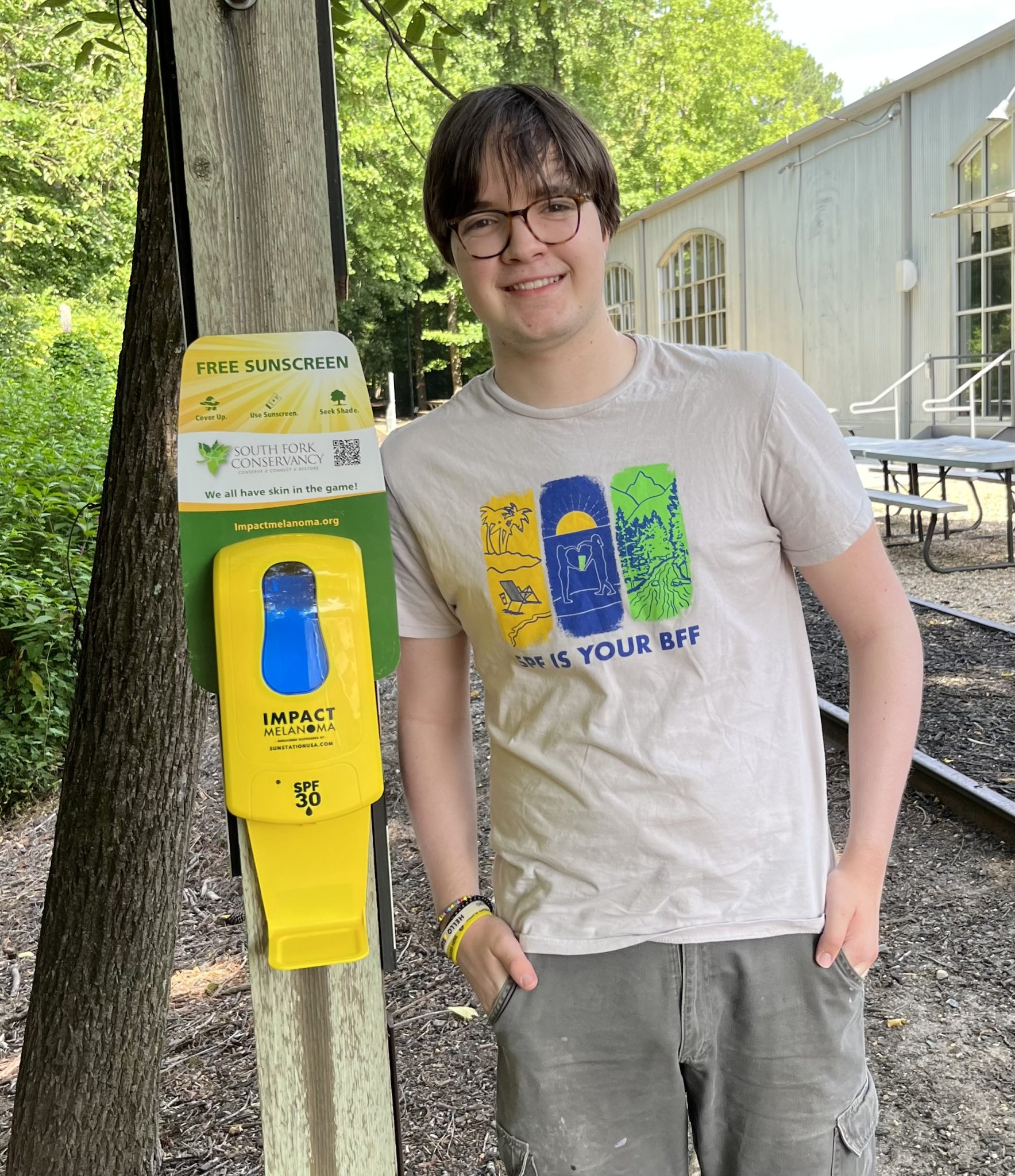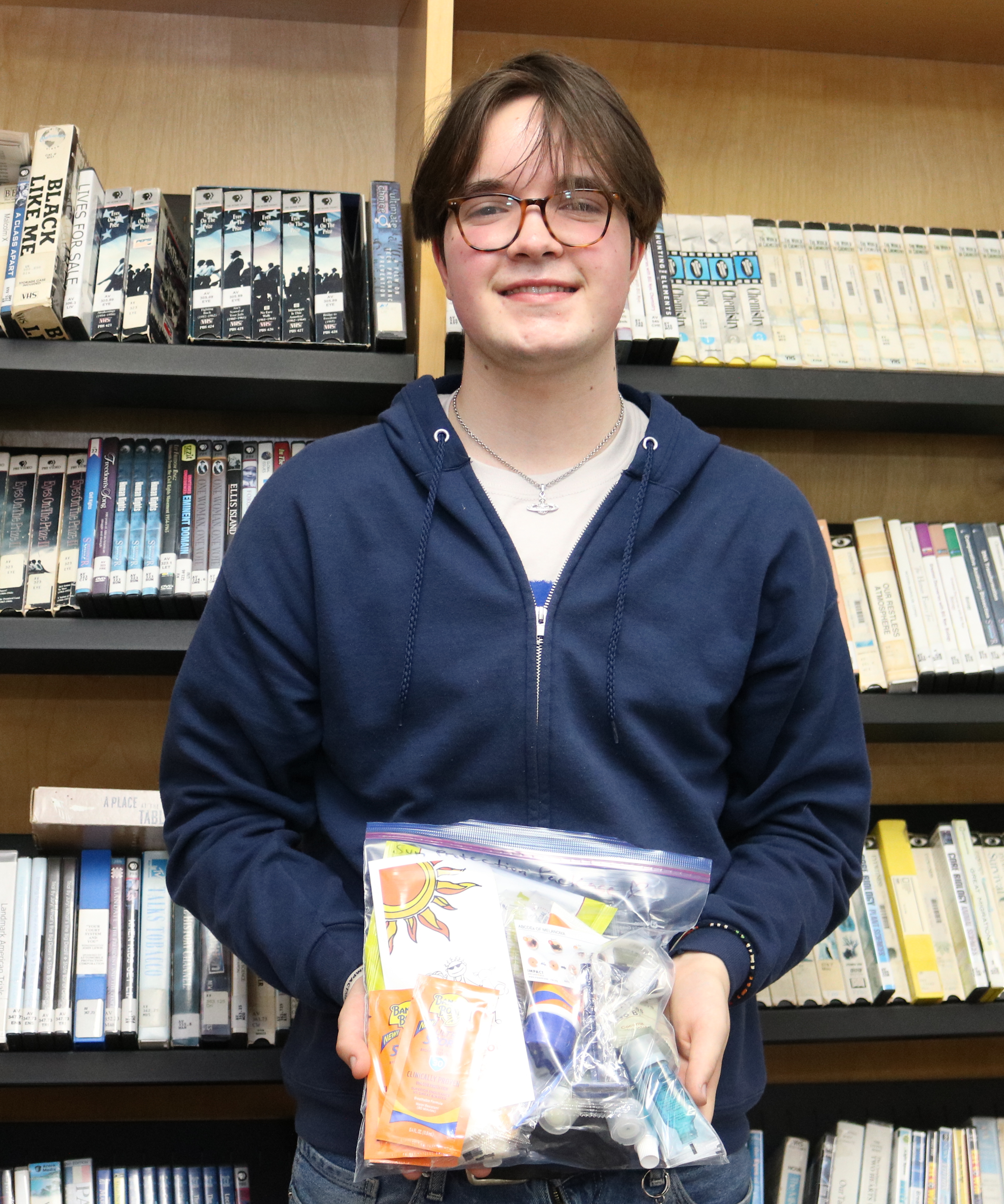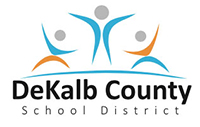Sunscreen Dispensers Installed in Public Spaces Across DeKalb County
Amharic | Arabic | Bengali | Burmese | Dari | French | Hindi | Karen | Nepali | Pashto | Somali | Spanish | Swahili
 Middle school can be a socially awkward time for preteens due to the challenges of puberty and other changes in their body. One of the most common concerns is the appearance of acne, which often leads to negative comments from peers. It can be challenging for preteens to understand what is happening to their skin and how to deal with it.
Middle school can be a socially awkward time for preteens due to the challenges of puberty and other changes in their body. One of the most common concerns is the appearance of acne, which often leads to negative comments from peers. It can be challenging for preteens to understand what is happening to their skin and how to deal with it.
During middle school, Ellis Schroeder faced a more severe skin condition called rosacea, which still persists. Rosacea is a common skin disease affecting approximately 16 million Americans, as the American Academy of Dermatology (AAD) reported. Currently, an 11th-grade student at Druid Hills High School, Ellis often experiences reddened skin and a rash on the nose and cheeks due to this long-term inflammatory skin condition.
“There are a lot of self-confidence issues in middle school. I was pulled out of a line by one of my teachers in a science class, and the teacher asked what was wrong with my face,” said Ellis. “People in my classes were already asking me if I was wearing blush or if I was wearing makeup and asking what was wrong with my face. That took a big toll on my confidence.”
Ellis started investigating his circumstances and other skin conditions commonly affecting teenagers. He went through research papers from dermatologists and watched videos on YouTube about rosacea and other similar skin conditions. He attempted to explain his condition to his classmates but soon realized they didn’t comprehend the significance of good skin health.
“We don’t have very strong health education, specifically regarding our skin,” said Ellis. “That motivated me to begin an organization called DermaTeens, which is dedicated to educating teens on skin health and promoting sun safety.”
 DermaTeens was founded in 2021 as a project to create informative articles about various skin conditions. Ellis researched information from the Centers for Disease Control and Prevention and the AAD to create informative articles. According to Pediatric Partners of August, some common skin issues that affect teenagers include acne, eczema, hives, psoriasis, and rosacea.
DermaTeens was founded in 2021 as a project to create informative articles about various skin conditions. Ellis researched information from the Centers for Disease Control and Prevention and the AAD to create informative articles. According to Pediatric Partners of August, some common skin issues that affect teenagers include acne, eczema, hives, psoriasis, and rosacea.
Ellis expanded DermaTeens to 50 teenagers worldwide after seeing a surge in reader views. The platform is intentional about sharing information about skin health and tackles health inequities that affect teenagers.
“That motivates us to do different programs,” said Ellis. “We created sun protection packages, a kit of hygiene products, and items of critical need for the Atlanta Mission Homeless Shelter.”
DermaTeens is currently involved in several projects, including installing sunscreen dispensers in public places. In 2022, Ellis joined hands with IMPACT Melanoma to fund and set up twelve public sunscreen dispensers in Zonolite Park in the Druid Hills area. IMPACT Melanoma is a leading non-profit organization in the United States dedicated to significantly reducing the incidence of melanoma and saving lives.
IMPACT Melanoma provides portable, hands-free sunscreen dispensers under its “Our Safe Skin at Work” program. Ambitious as always, Ellis held a fundraiser to raise money for the dispensers and was able to have them installed in Zonolite Park last summer.
“I reached out to [IMPACT Melanoma] and told them I wanted to bring this to my community,” he said. “It’s a very self-led project where I have to solicit funding and partnerships with parks and recreation departments.”
Ellis reached out to DeKalb County commissioners via email regarding his project. Commissioner Ted Terry promptly responded and included Chuck Ellis, the director of the DeKalb County Parks and Recreation Department in the conversation. They are now collaborating to install dispensers in the Toco Hills area, where Ellis resides, in partnership with the DeKalb County Youth Commission – an organization that Ellis is a part of. The installation is scheduled to take place later this spring. Next, they are exploring the possibility of setting up dispensers at golf and tennis centers throughout the county and along trails.
DermaTeens has a mission to combat the spread of misinformation about skin health. For instance, there is a common misconception that African Americans do not need to wear sunscreen. However, this is not true. The AAD states that people of all skin colors, including those with brown and black skin, are susceptible to skin cancer. Therefore, people of color need to wear sunscreen to minimize the risk of skin cancer.
“With my mom’s metastatic breast cancer diagnosis and then my aunt’s melanoma diagnosis highlighted to me how big of an issue skin health can be and how imperative it is for people of all ages and skin colors to practice sun safety and focus on making sure your whole body is healthy to prevent things like this,” said Ellis.
Ellis said it feels empowering to teach his peers and others about skin health, inspiring him to consider a career in public health. He hopes that his work will also encourage other teenagers to make a positive difference in their community, particularly on issues they are passionate about.
“If you really open your eyes to what is happening around you, you can really notice issues that you can lean into that make you upset or angry and find ways to fix it,” said Ellis. “It can be very fulfilling.”
For more information on DermTeens, please click the links below.


